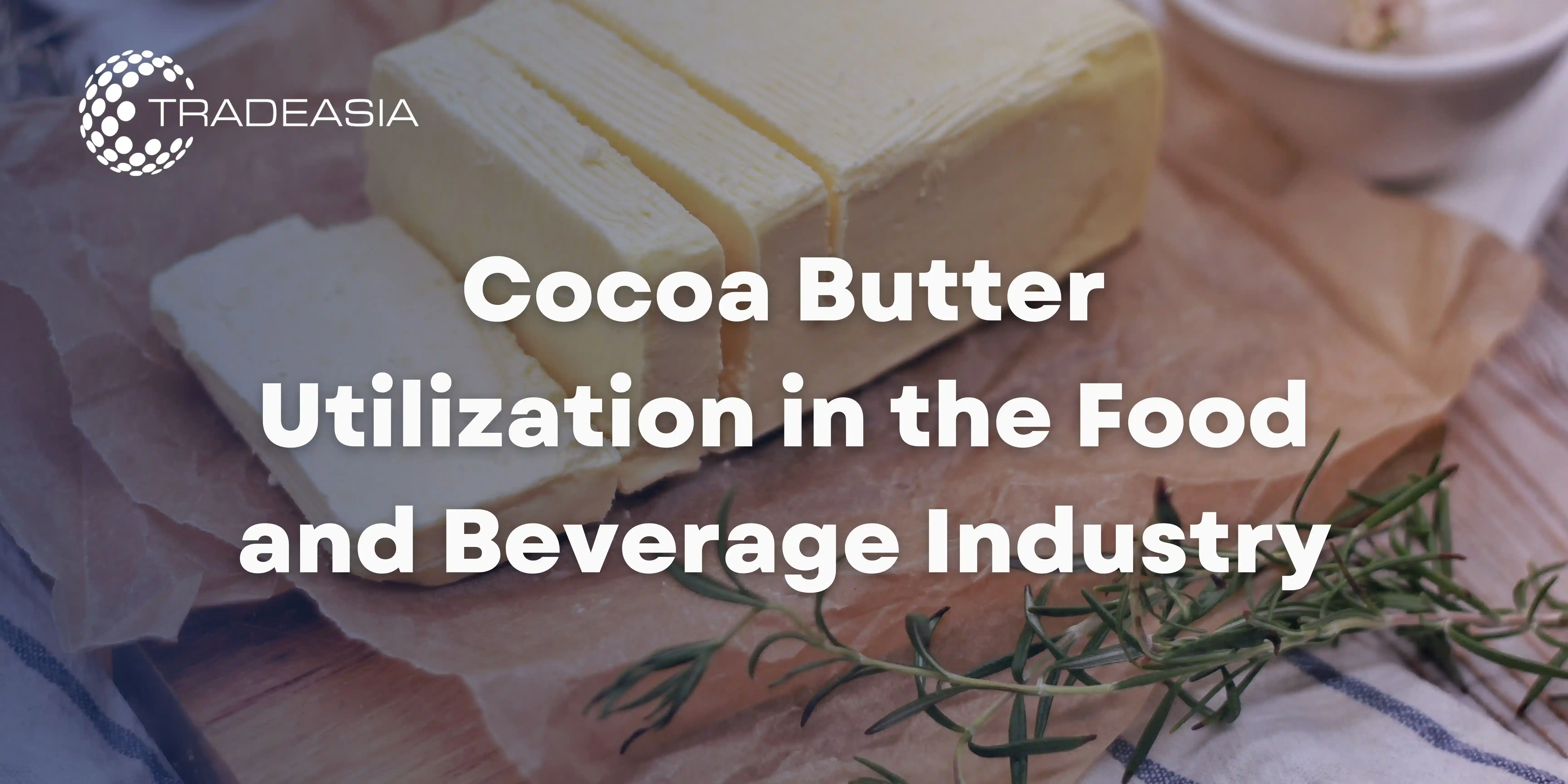Cocoa Butter Utilization in the Food and Beverage Industry

Table of Content
- The Chemical Properties of Cocoa Butter
- Applications in the Food and Beverage Industry
- Benefits of Cocoa Butter in the Industry
- Cocoa Butter Production and Supply in Sri Lanka
- Economic and Industrial Implications
- Challenges in Cocoa Butter Utilization
- Conclusion
Cocoa butter, derived from cocoa beans, is a versatile ingredient extensively utilized in the food and beverage industry. In Sri Lanka, the growing demand for high-quality and sustainable ingredients has elevated the significance of cocoa butter, particularly in confectionery and other food applications. This article explores the applications, benefits, and economic impact of cocoa butter in the Sri Lankan food and beverage sector.
The Chemical Properties of Cocoa Butter
Cocoa butter is a natural fat extracted from cocoa beans. It is composed primarily of triglycerides, with key fatty acids including:
-
Oleic acid: A monounsaturated fat promoting smooth texture.
-
Stearic acid: A saturated fat providing stability and structure.
-
Palmitic acid: Enhances the shelf life of products.
Its melting point (approximately 34–38°C) and its ability to remain solid at room temperature make cocoa butter ideal for food products requiring texture stability.
Applications in the Food and Beverage Industry
-
Chocolate Manufacturing
Cocoa butter is a primary ingredient in chocolate production, giving chocolate its smooth texture, sheen, and rich mouthfeel. It is particularly valued for its ability to stabilize the melting behavior of chocolate.
-
Bakery and Pastry Products
The unique consistency of cocoa butter is used in bakery glazes and fillings, enhancing the richness of baked goods.
-
Dairy Alternatives
As vegan and lactose-free diets gain popularity, cocoa butter is utilized in plant-based dairy products like creams and desserts, providing a creamy texture without animal-derived fats.
-
Confectionery Glazes
It is widely used to coat candies and confectioneries, giving them a glossy and appealing appearance while protecting them from moisture.
-
Health Foods
Due to its natural composition and antioxidant properties, cocoa butter is often used in energy bars and nutritional supplements.
Benefits of Cocoa Butter in the Industry
-
Enhanced Product Quality
Cocoa butter improves the sensory experience of food products, contributing to a luxurious feel and longer shelf life.
-
Natural and Sustainable
As a plant-based fat, cocoa butter aligns with consumer preferences for clean-label and eco-friendly ingredients.
-
Versatile Applications
Its stable properties make it an adaptable ingredient across various food categories.
-
Health Advantages
Rich in antioxidants, cocoa butter offers additional health benefits by neutralizing free radicals, which may appeal to health-conscious consumers.
Cocoa Butter Production and Supply in Sri Lanka
Sri Lanka, with its increasing focus on sustainable and ethical sourcing, has become a significant importer of cocoa butter to support its growing food and beverage sector. Key aspects include:
-
Sourcing: Cocoa butter is mainly imported from major producers in Africa and South America.
-
Processing: Local facilities process imported cocoa butter for tailored applications in confectionery and bakery industries.
-
Distribution: Suppliers cater to small-scale artisanal producers and large-scale food manufacturers.
Economic and Industrial Implications
The utilization of cocoa butter significantly impacts Sri Lanka's food and beverage industry by:
-
Boosting Exports: High-quality chocolate and confectionery products made with cocoa butter are increasingly sought in international markets.
-
Encouraging Innovation: Food manufacturers are developing premium products to meet evolving consumer preferences.
-
Supporting Local Industries: The adoption of cocoa butter enhances the competitiveness of Sri Lankan food brands.
Challenges in Cocoa Butter Utilization
Despite its benefits, challenges persist:
-
Cost: Cocoa butter is relatively expensive, impacting production costs.
-
Supply Chain Dependence: Sri Lanka's reliance on imports can lead to supply fluctuations.
-
Sustainability Concerns: Ensuring ethically sourced cocoa butter is vital to maintaining consumer trust.
Conclusion
Cocoa butter remains a critical ingredient in Sri Lanka’s food and beverage industry, contributing to product quality and innovation. By addressing supply chain and sustainability challenges, Sri Lanka can further capitalize on this versatile ingredient to enhance its food sector’s global presence. If you are interested in our products for your specific business needs, please do not hesitate to contact us.

Leave a Comment